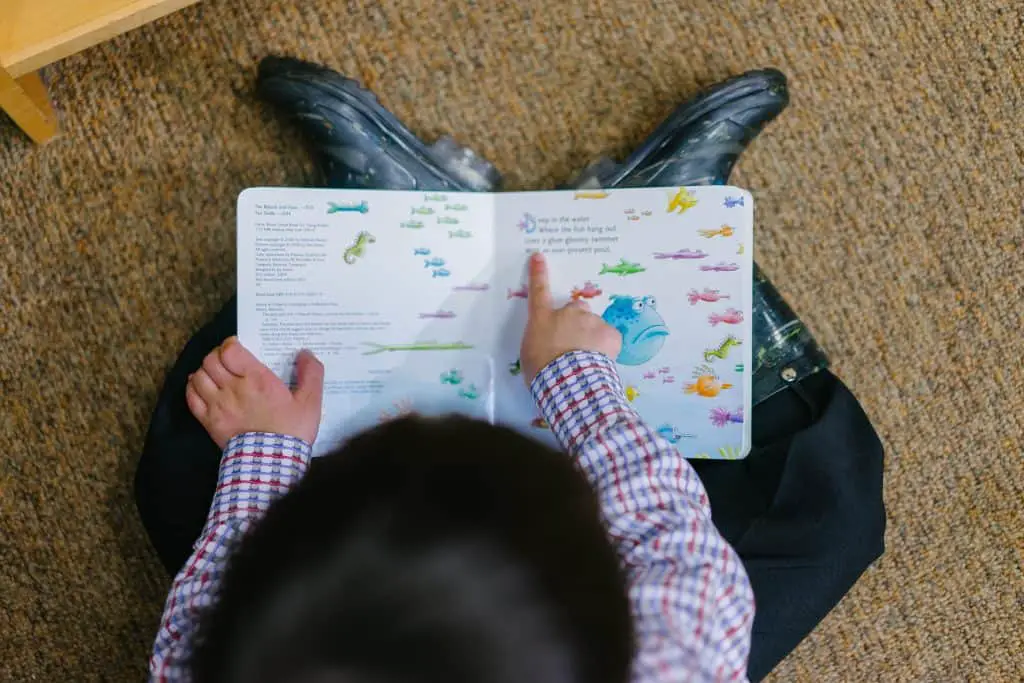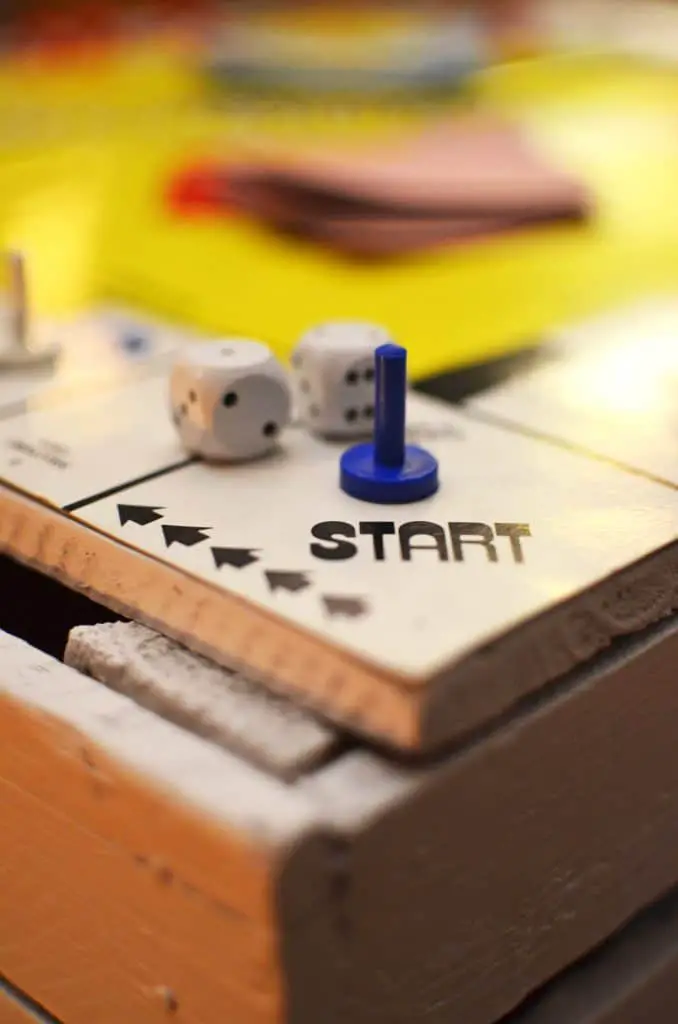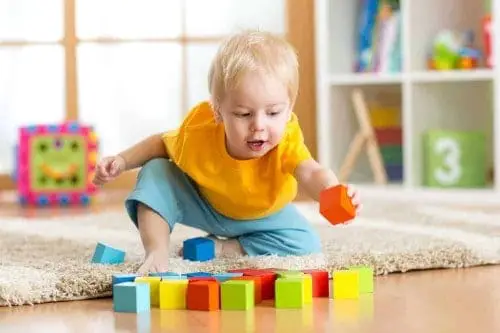By Lori Ennis, M.S. Ed.
One of the most exciting times in a parent’s life is watching as their little one’s vocabulary begins to open up. This is when our kids begin to show pieces of who they are in the words they use and say. From “Mama” and “Daddy” to “I do it by myself,” those little words are literally music to our ears.
But what happens if the words don’t come as you expect they might? What if your little one’s words seem disjointed or difficult to understand, or they simply don’t come at all as the milestones you’ve been told they would?
When you think there may be an issue with your child’s speech, you want to do everything you can to help them bring their words to the world. You’ll look at things that offer help with speech delay in toddlers. You’ll most likely consult your pediatrician to find out exactly what your path should be when it comes to a possible speech delay.
The good news is that there are definitely things you can do to encourage your child’s speech development, and a good speech therapist can lead you to speech therapy for toddlers that you can do at home as well.
A great resource for parents who believe their child may have a speech delay is the Toddler Speech Boost website. You can find information on what to look for in milestone development, what you can expect from speech therapy for your child, and toddler speech delay activities that you can do at home to help encourage appropriate speech development.

Speech Delay in Toddlers: When to Consult a Speech Therapist
If you are thinking about looking into speech therapy for your toddler, odds are you believe your little one may have speech delay. It’s hard to know what is developmental and just needs a bit more time and what is actually a developmental delay.
Particularly because toddlers, like older children and adults, learn and grow at different rates, your pediatrician may tell you to wait until your child is at least two-and-a-half before you seek a consult with a therapist. Some children are simply late talkers; others truly need intervention.
Because speech can make an impact on your child’s overall development and growth, speech therapists can be wonderful resources when it comes to assessing speech delays in your child.
Look for the following signs and behaviors in your child when deciding whether or not to consult a speech therapist for further consult.
Mispronunciation: More than Cute Mistakes
No, there is nothing cuter than hearing a toddler say, “Bus-getti” for spaghetti and, “Beet-balls” for meatballs. This isn’t uncommon, and few speech therapists would recommend toddler speech delay activities for mispronunciations such as this.
But, if you find that your little one is having more difficulty with vowels than they are consonants, you might want to pay closer attention to the way they say all their words. It’s not uncommon for /f/ to stand in for /th/ or /sh/ but if your toddler seems like he or she is having a hard time with vowel sounds, this may be a sign of a deeper delay. This is more about the vowel sound and less about the consonants.
Delayed Speech: Time is on Their Side?
Check out the Toddler Speech Boost website for a list of time frames in which most clinicians agree speech and word counts should occur. They’re not written in stone, so don’t hold rigidly to them. But, one surefire sign of a possible speech problem is delayed or stunted vocabulary growth.
You may want to reach out to a speech therapist if:
- Your child doesn’t seem to gain any or many new words
- Your child seems to regress in their vocabulary and communication
When Only a Mother Can Understand
There are some voices and sounds your child may make when trying to communicate that should set off red flags when you hear them. Does your child use a cartoon or strange voice like a robot or a growling pirate consistently? If so, you should consider consulting a speech therapist. These strange voices may be initial signs of speech impediment.
Copycatting isn’t Easy or Fun
The main way children begin speaking is from imitation. When children hear us, they imitate us, and those are the basic foundations to speech and communication. Imitation is key in your child’s language development, so if you find that your child has a hard time mirroring your speech or your inflection, even if just one-syllable-words, he or she may be struggling in their speech. That is when a speech therapist can offer speech delay activities for toddlers that can help bring them up to speed.
These are certainly not exhaustive in their listings, and you’ll never regret checking out delay and then hearing a speech therapist tell you that all seems to be well. But, speech therapists are trained in how to help speech delay in toddlers, and early intervention makes a tremendous impact on development and achievement.
How to Help Speech Delay in Toddlers at Home: Bring on the Fun!

While a speech therapist is trained in how to help speech delay in toddlers, they’ll also tell you there are many speech delay activities for toddlers that you can do at home and that are fun for you and your child. Working with your child at home will make the techniques you are instilling more organic and meaningful to your child, and you’ll both enjoy the quality time as well!
Speech Delay Activities for Toddlers that Excite Them
There are few toddlers who don’t love to play games! Just about every game you can think of helps a child’s speech development and makes them super excited to be playing with you.
Memory card games help build word association as well as their vocabulary and work on working memory, and there are many educational games for sale now that focus on developing a child’s expressive and receptive language skills.
Your little one doesn’t have to think you’re working on his or her speech; they’ll just think you’re playing games and they’ll beg for more!
Read, Read and Read Some More!
One of the best and easiest ways you can work on both your child’s receptive and expressive language skills is by reading to them. Yes, reading! It’s great for bonding, of course, but even better? Reading to your child allows them to hear you say words appropriately and correctly. It lets them hear proper inflection and as you read to them, they form pictures in their heads that create extensions you can discuss.
Ask your child about what you are reading to develop both expressive and receptive language. Have them repeat what you read, have them read a line and you read a line/read a page and you read a page. It’s not only a great speech delay activity for toddlers, but research shows it grows better readers down the line as well.
This Piece Goes Where?
Puzzles can be used for more than teaching your child more than spatial concepts and hand-eye coordination. In fact, your block puzzle can be a vital tool for speech therapy. Many block puzzles and other puzzles designed for toddlers use pictures and sound to help child development.
These can be used just like with the painting or games to create a consistent dialogue between you and your child that helps with communication skills and vocabulary.
The Final Words
Speech delays in toddlers are not uncommon, and you’re not alone when it comes to parents who are looking for how to help speech delay in toddlers. The best news is that there are many skilled speech therapists who want to work with you in-office and at home with activities that will help encourage and promote the appropriate growth for your child’s speech.
For more information about speech therapy for toddlers, be sure to visit the Toddler Speech Boost site where you will find helpful tips, lists, and information that can help you along the way to getting your toddler the help they need to get talking.

